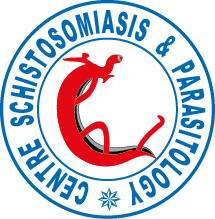Recent studies on the reproductive biology of the schistosomes and their relevance to speciation in the Digenea
Abstract
The members of the family Schistosomatidae, dioecious Digenea, are discussed with regard to their distribution, intermediate and definitive host-parasite relationships. The biological species concept is considered together with the difficulties of its application to Schistosoma spp. and the Digenea. The correlation between pairing of adult schistosomes, physical and sexual development and the maintenance of reproductive potential is emphasised. Development of the female reproductive system does not depend upon species-specific pairing. In some combinations, e.g., Schistosoma haematobium/Schistosoma intercalatum and Schistosoma bovis/Schistosoma curassoni, a specific mate choice system apparently does not exist, whereas it does in other combinations, e.g., Schistosoma mansoni/Schistosoma intercalatum. In mixed infections change of mate may occur and when the opportunity arises heterospecific pairs of worms will change partners to conspecific pairs. Interspecific pairing in adult schistosomes will lead to either hybridisation or parthenogenesis. Yet the majority of schistosomes that inhabit the same definitive host maintain their genetic identity: specific mate recognition, site selection within the host and heterologous immunity have been suggested as isolating mechanisms. Experimental intraspecific crosses have enabled evaluation of the degree to which some populations separated and became reproductively isolated through pre-mating isolating mechanisms, indicative of incipient speciation, e.g., the Lower Guinea and Zaire strains of S. intercalatum. The occurrence and significance of parthenogenesis in schistosomes and other species of Digenea are discussed. The consequences of interspecific mating interactions in schistosomes with regard to parasite epidemiology, interspecific competition and genetic heterogeneity are debated. Geographical isolation and host specificity represent important pre-zygotic isolating mechanisms. It is suggested that site selection within the host and heterologous immunity may both reduce interspecific genetic interchange when digenean parasites utilise the same definitive host.
